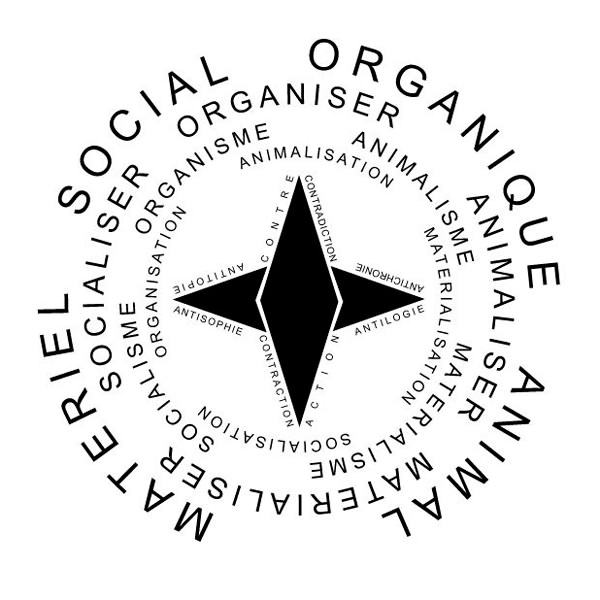The heritage of modernity boils down to the question of a multifaceted, contradictory body of knowledge assembled from reading situations, irregularities, misinterpretations, false friends, disparities, nonsense, hybridism, discord – and dyslexia. The issue was to go back to what we thought was a modern paradigm, a root event, one of the moments when the great modernity crisis took shape; this moment is the consequence of a few decades of work by the Enlightenment and the trigger of a modern mythology that come to have its own altar: two days of the French Revolution, October 5th and 6th, 1789, two days when history accelerated. Nothing is missing: the freedom issue, the implementation in real life of what had merely been philosophy, the “people” in the leading role, the tottering government, outstanding heroines, feats of arms, high principles, and masterpieces of the written word.
Following “modern” interpretations of this moment-turned-event, one will always find the idea of a liberating spontaneity of the masses and an unquestionable passion du réel – the “real” being material to be transformed according to Alain Badiou’s definitional concept that he applies to the history of modernity. We wanted, however, to shed light on what was problematic concerning these October days: the way we look at this very quick succession of facts. Observing the facts and the historical phenomena stands a viewer that articulates a language where really there are only disparate sounds.
The purpose was not to achieve a historical exercice de style. We wanted to ask whether it is possible to understand anything at all of an event whose interpretation could never be “objective”. The four frames we have conceived to shape apparent facts are not so different. It is not about radical oppositions or contradictory conclusions. What could be the compass of a map where the cardinal directions are just slightly different? Such a compass, such a map: here the problem becomes plastic.
We have built this brief digest of modern mythology using various perspectives and following intertwined directions rather than unambiguous ones. This project is not about interpretation; it is about events as progressive motifs, as in music. To produce these motifs, we have applied a classification system which combines Charles Fourier’s [*] theory about the four movements of the world with the frame built by psychoanalysis to help understand the various individual or collective reactions during a “revolutionary moment.” Fourier’s movements – material, social, organic, and animal – were identified with four basic attitudes: the repression of desire and the return to the dominance of an established order of things; the fantasized, idealized realisation of desire and the myth of freedom as the result of a formal choice; self-realization and responsible self-sufficiency; and finally the paranoid revolt against any power, the radical split and the expression of desire through terror. The first three movements could be replaced by contemporary adjectives (liberal / conservative / leftist / socialist / feminist / autonomist, etc.) as well, but we have kept the term “animal movement” to reflect the energy of Donatien de Sade’s work: the rejection of bourgeois Enlightenment and of the beliefs of modernity, the absolute radicalism of desire, the rejection of positivism, the critique of all power – the anti-society, anti-human, anti-hope. It was with the same purpose: not to use him as an anti-modern hero, but to remind us that its ultimately irredeemable efforts are not autonomous, but dependent on the other constituted worlds.
As complex as it is, this analytical system is full of holes, and this is precisely the issue. Is it possible to subvert such worlds by the fabrication of gaps and holes? When Peter Sloterdijk analyses the structure of foam, he remarks that what stays between the bubbles creates at the same time their mutual dependence and a shared fragility. These in-betweens cultivate doubts about the possibility of vectorising perceptions.
| SOCIAL | ORGANIC |
 |
|
| MATERIAL | ANIMAL |
*François-Marie-Charles Fourier (April 7, 1772 – October 10, 1837) is considered a pioneer of socialism and feminism. As a utopian theoretician, he invented the word “féminisme” and had argued that the extension of women’s rights was the general principle of all social progress. Since the 19th century, he has inspired the founding of numerous phalansteres (communist communities), like La Reunion in Texas or the Familistere in Guise, France.
